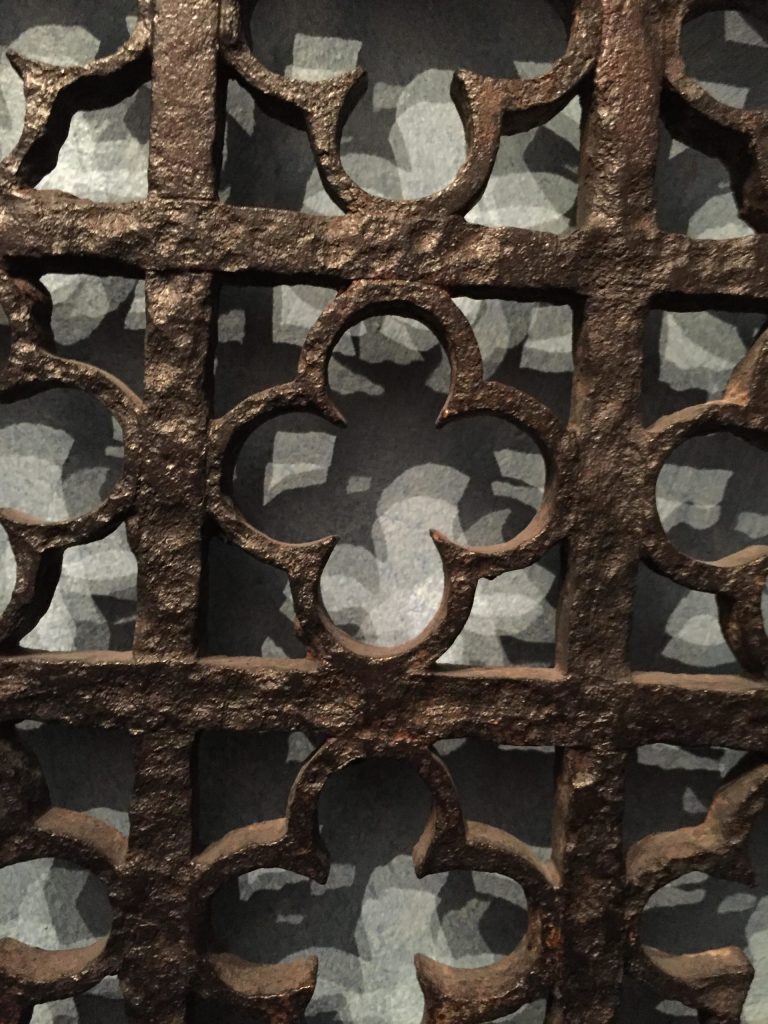
This year’s assignment for inner work during Lent came as an unsought gift and demand. On Ash Wednesday, between a midmorning meeting and an early afternoon medical appointment, I went to the noon service at All Souls Episcopal Cathedral. I looked forward to being guided in reflection, led into silence, marked with a reminder of death, and welcomed to the Table.
I hadn’t settled on a practice or discipline for this Lenten season. Since beginning chemotherapy for Multiple Myeloma on Ash Wednesday of 2014, I’ve spent a lot of time in wilderness terrain—probing questions of identity and worth, dealing with pain and uncertainty, and making voluntary and involuntary relinquishments. During the most recent Advent, Christmas, and Epiphany seasons, I had visited Bethlehem, held a candle in the sweet silent night, and thrilled to good news of great joy. Even so, I sojourned in the desert where I faced-off with diminishing energy, narrowing limits, and a changing vocation. I was being forced and freed to surrender still more of my illusions of control, independence, and strength.
Since I was already doing Lent-like work, I wasn’t looking for any more assignments. I received one, nonetheless, during the Litany of Penitence, as we confessed “our anger at our own frustration.” Those words challenged me to sift the causes, effects, and uses of my anger. Of course, to sift it I have to admit it, rather than to deny it—to engage rather than to evade it.
We all know that anger is inevitable, and it most often begins as our automatic reaction to anyone or anything which threatens us or people we care about or values we cherish. We flash with anger when people “trespass against us,” by ignoring and crashing across our boundaries. It’s right to be indignant at injustice and upset over unfairness. There are wrongs, wounds, and woes in the world that demand our anger.
Anger is valuable. It gives us the energy to resist, protest, or flee whatever and whomever harms us. It helps us to push back or to remove ourselves to a safer distance.
Anger’s energy can also be difficult to channel creatively and to use constructively. When anger rises in me, I’m responsible for asking what I’m angry about, why, and what I’m going to do with it. These days, prompted by the Litany of Penitence, I’m seeing that some of my anger is at my own frustration, especially my frustration over my limits, anxieties, hesitations, and failures.
Some of my anger is justified. For instance, I too often hesitate—procrastinate—to do things I need, want, and am able to do. Rightly used, my anger could provide a jumpstart to efforts to overcome my hesitations. Another example: some of my anxieties would lessen if I took action to address them rather than continued to ruminate over them. Anger, wisely channeled, could fuel that action.
Much of my anger at my own frustration, however, is displaced grief. I’ve sustained many losses, and it’s easier for me to be mad than sad—to flail-around rather than to weep. Crying would be harder and better, because it would make restoration possible. Grief isn’t a threat; it’s an opening to comfort and hope.
Some of my anger has to do with my frustration over my being human: fragile, flawed, and mortal, though also, because of divine love, cherished, gifted, and valuable. It’s uncomfortable to acknowledge that I carry lurking resentment over being merely and only human, resentment that is heavy with unhealthy pride and virulent shame.
It’s even more uncomfortable to admit that I get angry over my frustration with the disruptions caused, and by the coronavirus pandemic. The virus is a real threat, and the force of anger in response to it, if used well, could energize weary leaders and healthcare providers.
I have petty and selfish frustrations, though: canceled meetings, closed restaurants, and crowded grocery stores. People are getting sick and dying, and I’m frustrated by inconvenience. That’s just wrong. My anger and frustration push me to repentance.
Here’s something even darker: Because my immune system is compromised by ongoing chemotherapy. I’m susceptible to contracting COVID19. What if I’m angry over social distancing, disrupted routines, and unknown economic consequences as a way of avoiding the fact that I am at risk—in other words, that I am mortal?
My Lenten assignment is hard work, but I’m grateful for it. Getting clearer about my anger and frustration, especially about my anger at my frustration, affirms how much I need the grace God so willingly gives: welcoming, affirming, liberating, forgiving, and healing grace. Grace for limited, loved, fragile, cherished, guilty, and valued human beings—for me, for you, for all.
Discover more from From The Intersection
Subscribe to get the latest posts sent to your email.


Recent Comments